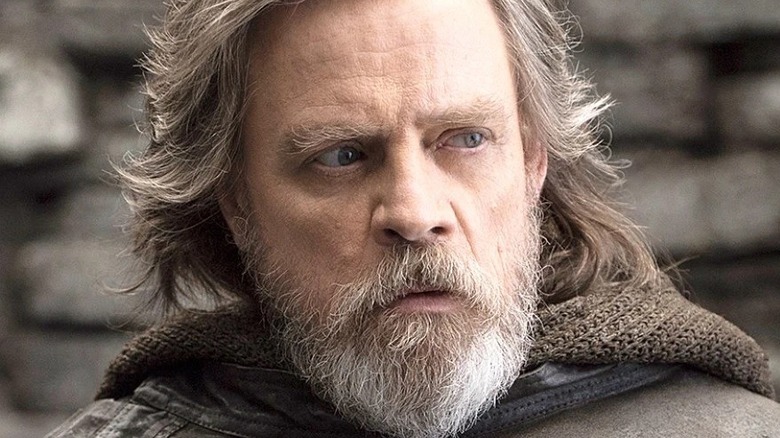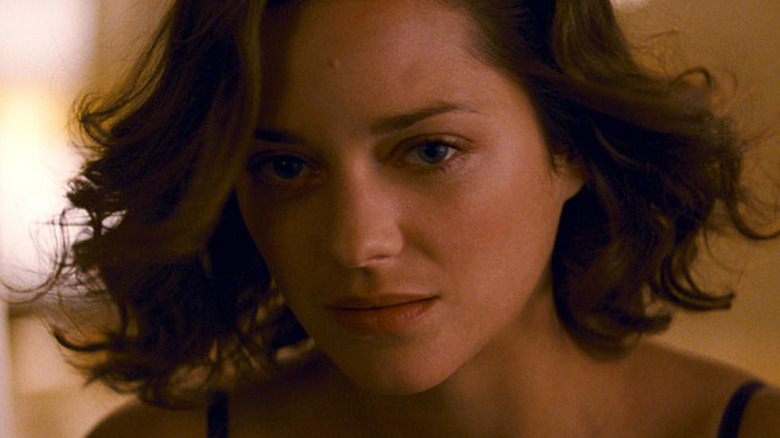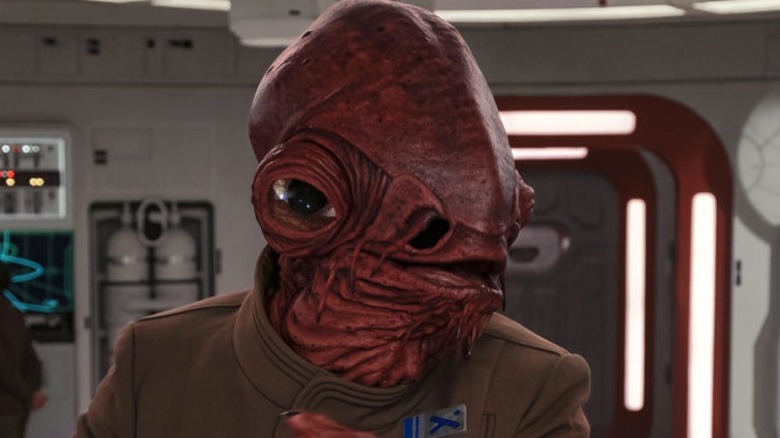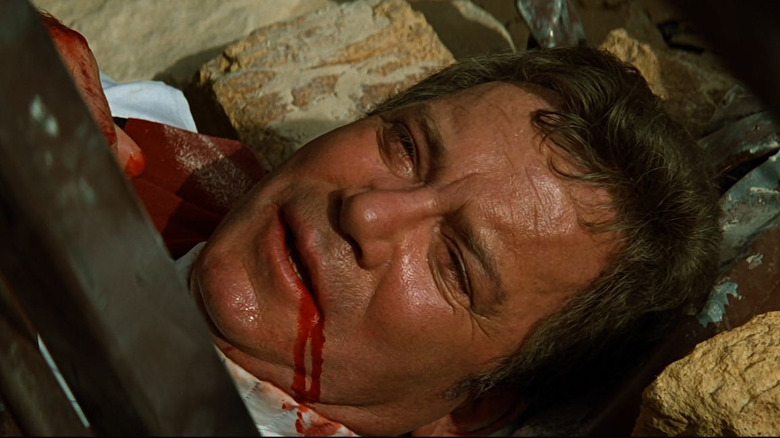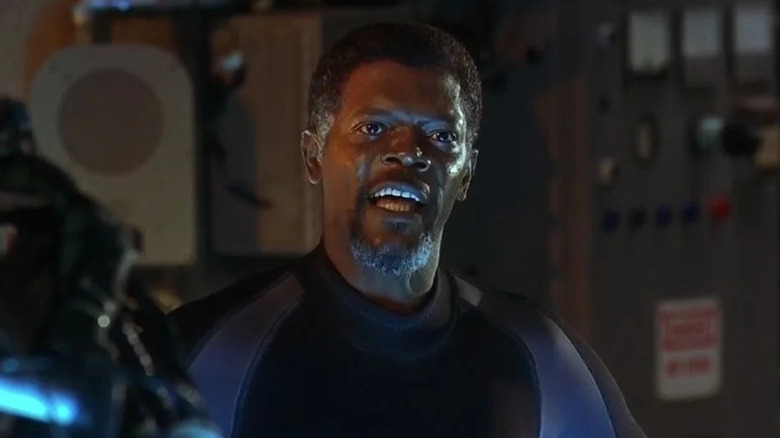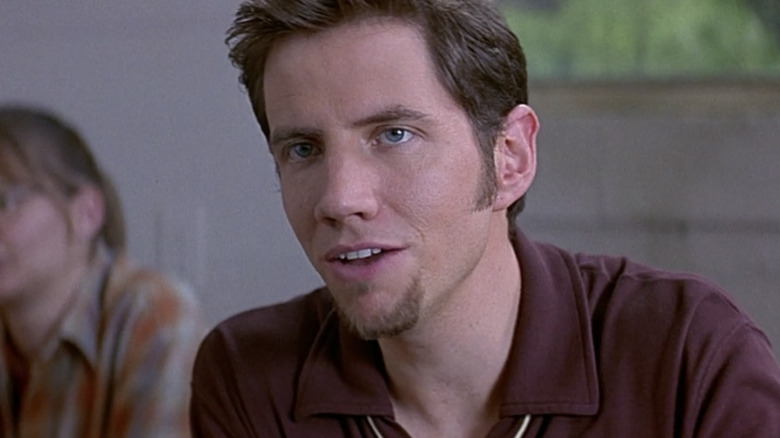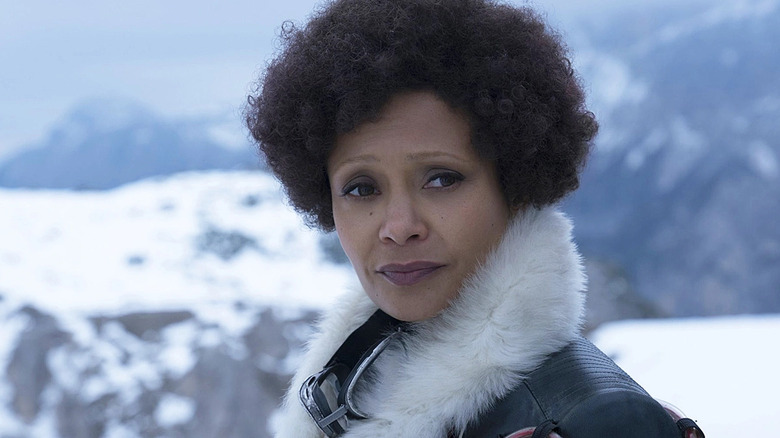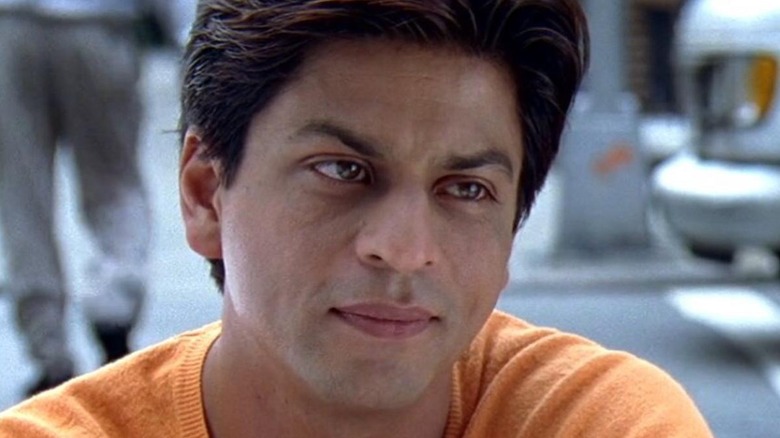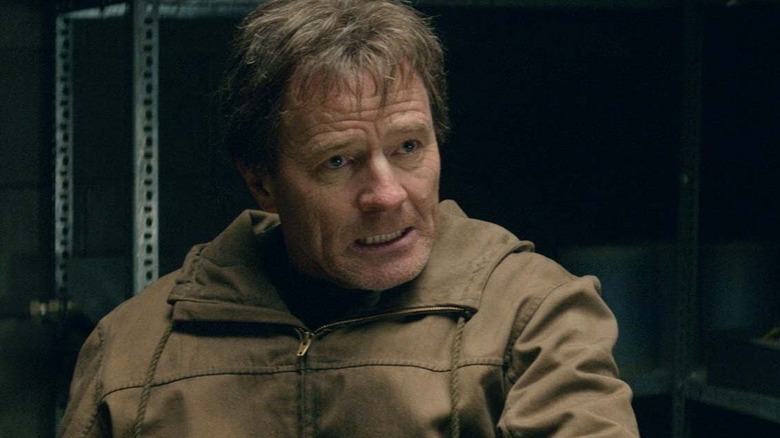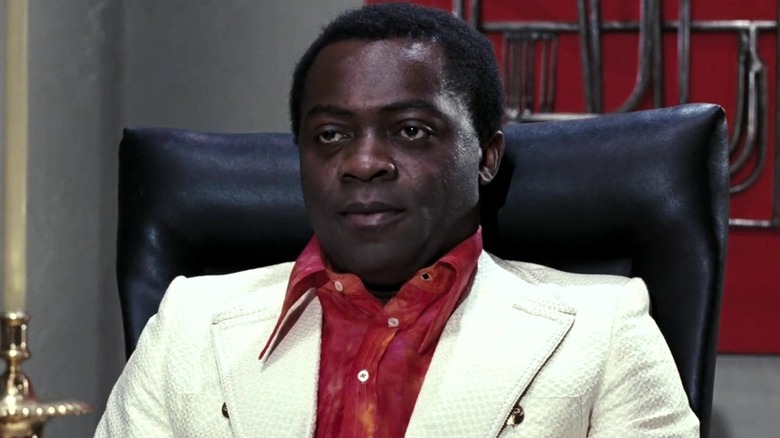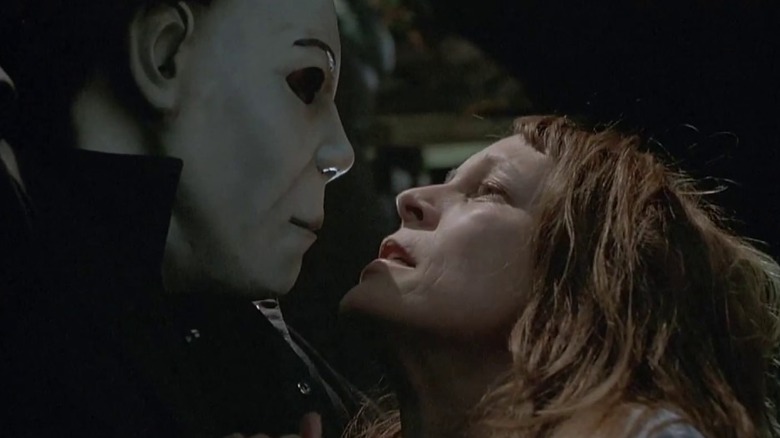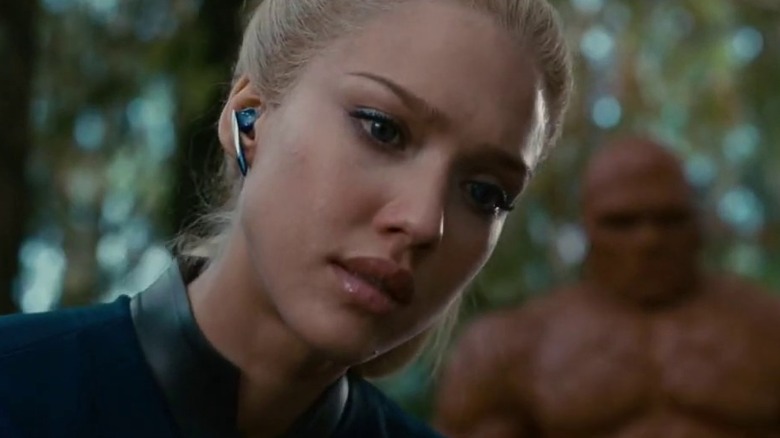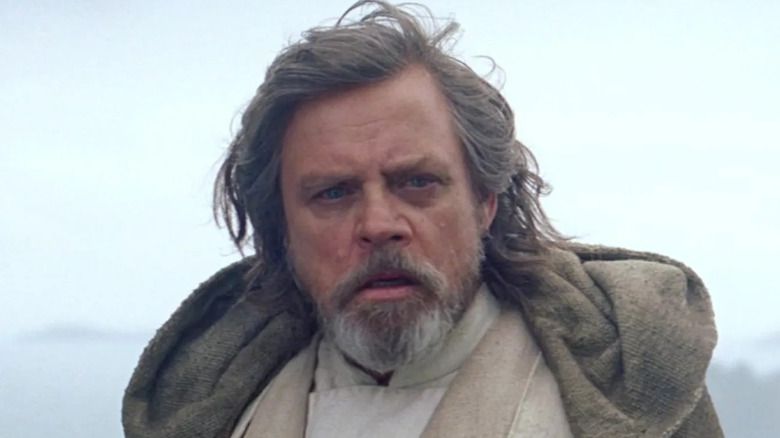Actors Who Couldn't Stand Their Own Character's Movie Death Scene
There are few things more dramatic in fiction than the climactic death of a major character. Some of the most powerful moments in movies across all genres involve a beloved protagonist meeting their end, whether it's the murder of Marion in "Psycho," the death of Bambi's mother in "Bambi," or the sacrifice of Obi-Wan Kenobi in the original "Star Wars."
Because they're often so emotional and moving, actors usually enjoy the chance to appear in a powerful death scene. But every once in a while, an actor will have a problem with their big moment, or lament a missed opportunity. They might be unhappy with how the scene is written, or are just plain upset that their character has to die because they don't think it suits the story. With franchises now bigger than ever, some actors may even be disappointed that they can't come back for the sequels.
Whatever the case, these actors weren't thrilled with their characters' final on-screen moments, and they made their displeasure known. Here's a list of Hollywood greats who hated their own movie death scenes.
Marion Cotillard - The Dark Knight Rises
In 2012, "Inception" star Marion Cotillard for another Christopher Nolan movie with "The Dark Knight Rises," the highly anticipated sequel to the Oscar-winning 2008 blockbuster "The Dark Knight." In the film, Cotillard plays Talia al Ghul, the daughter of Ra's al Ghul from "Batman Begins," who sets out to complete her father's mission of destroying Gotham and allies herself with Tom Hardy's Bane to do it. In the end, Talia gets killed off in the film's climax, but for many, it's not a satisfying scene.
In fact, audiences outright mocked the character's death scene, in which Cotillard comically slumps her head after telling Batman that her father's work is finally done. In an interview with French outlet Allocine (translated by ComicBook.com), the actress revealed how she felt about the audience's response to Talia's death. "I thought people overreacted, because it was tough to be identified just with this scene," she said. "When I'm doing the best I can to find the authenticity in every character that I'm playing, it's tough to be known just for this scene."
In the end, though, the actress found a more positive outlook and has been able to properly put the ordeal into perspective. "It's important to know how to laugh about this, and also, there are worse things in life," she told Allocine. "I just thought the reaction was disproportionate, and it helps to laugh about it."
Tim Rose - Star Wars: The Last Jedi
Actor and puppeteer Tim Rose is probably best known as Admiral Ackbar in the "Star Wars" franchise. He first appeared in "Return of the Jedi" in 1983 and returned to the role twice more in the "Star Wars" sequel trilogy. But Ackbar meets an unceremonious end in "The Last Jedi," the controversial installment directed by Rian Johnson, in a moment that proved divisive with fans.
Rose himself was also riled by his character's death, calling the whole thing a "big joke" in an interview with British journalist Jamie Stangroom in 2019. According to the actor, he was already disappointed that many of his filmed scenes in "The Force Awakens" had been cut, and he was excited to do more in "The Last Jedi."
"I was quite looking forward to maybe them giving him something more juicy," Rose said, revealing that the cast was only given the script for each day's respective scenes. "So each day I would come to work going 'Is today the day when Ackbar gets something a bit more involving?" Shocked to learn he'd be killed off, Rose didn't take it well. "I was actually in tears in the suit because I thought, after everything, after hoping there'd be something, after knowing there wasn't going to be anything else, Ackbar's final moment before he went into the box was just a big joke."
William Shatner - Star Trek Generations
There are few actors more closely linked to a single role than William Shatner is to "Star Trek" protagonist Captain Kirk. Star of the original "Star Trek" series for three seasons in the 1960s and a whole series of feature films into the 1990s, Shatner has long had a controversial relationship with Trekkies. Perhaps finally looking to put the role behind him, he seemingly had no qualms about reprising the role one last time in the 1994 film "Star Trek Generations," which passed the torch from the classic crew to that of "The Next Generation" — even though the script saw him killed in the final act.
But once the franchise continued happily on without him, Shatner seemed to start regretting his agreement to film Kirk's death. The actor even set out to rectify matters, ghost-writing a series of "Star Trek" novels that resurrected the former Enterprise captain and lobbying for returns in both 2004's "Star Trek: Enterprise" and J.J. Abrams' big-screen reboot in 2009. He's made it clear in several interviews that he was never really happy with his death in "Generations," telling TrekMovie in 2018, "I didn't think I had any choice in the matter ... That decision had been made. It was either I was going to appear and die, or they were going to say he died. So, I chose the more practical of the two."
Samuel L. Jackson - Deep Blue Sea
With a list of credits longer than a CVS receipt, Samuel L. Jackson might have plenty of scenes he regrets for one reason or another, but there's one character death that apparently stands out for the actor: His shocking demise in the schlock action flick "Deep Blue Sea." In the film, Jackson plays Russell Franklin, a corporate executive investigating an incident at a sea-bound research facility. During a climactic moment, Franklin is eaten alive by a massive shark just as he's given a rousing speech to his team.
But while the death scene left audiences' mouths agape in 1999, and has since become notorious, it didn't sit right with the actor as it was originally written. In fact, the scripted version of the scene included some seven pages of dialogue, and Jackson wasn't having it. "It was seven pages of the worst dialogue you've ever heard in your life," the film's VFX supervisor Jeff Okun said in a 2019 interview with befores & afters. "And it was a monologue." As Okun and Jackson had already worked together on a couple of films, they tried to figure out a way to cut the scene down.
"The night before, Sam called me up," Okun said. "He said, 'You know, why don't you just kill me?' And I said 'Hmm, yeah, I can kill you. I can kill you much earlier than the end of the seven pages.'" The final scene sees Franklin eaten long before the monologue ends, yielding one of the most memorable deaths in movie history.
Jamie Kennedy - Scream 2
Jamie Kennedy was a rising young star in the mid-1990s, mostly thanks to his breakout role in the iconic 1996 horror comedy "Scream." As high schooler Randy Meeks, Kennedy survives the Woodboro Murders in the first movie, and he returns in "Scream 2" when the murderous Ghostface strikes again just a year later. This time, Meeks doesn't make it out alive, falling to the serial killer in a shocking death scene. For many, the 1997 sequel is even better than the first, and critics agreed, but that doesn't mean everyone was happy to see Kennedy's fan-favorite character meet his end.
In a 2019 interview with TooFab, Kennedy reflected on the sequel. "It's crazy how 2 is almost as good as 1," he said. "It's hard to say anything's better than 1, because it was the one that did it, put it on the map." Kennedy said that he also loves "Scream 2" and all he got to do in it, but that he still wasn't thrilled to be killed off. "I love some of my monologues in 2, I love that Randy got to do a lot. But I hated that he died," the actor said. That said, Kennedy accepts that Randy's death was needed for the story. "It also made a huge impact," he said. "So even though I hate it, somebody had to die, it made it talked about that I did."
Thandiwe Newton (Solo: A Star Wars Story)
In 2018, Thandiwe Newton entered the "Star Wars" universe in the prequel spin-off "Solo: A Star Wars Story." The project had its fair share of troubles behind the scenes, with original directors Phil Lord and Chris Miller booted after much of the film was shot and replaced by Ron Howard. In the film, Newton's character Val is an associate of Woody Harrelson's Beckett — a fellow scoundrel and part of the crew that recruits the young Han Solo.
But despite having a talented and well-known actress in the role, the film quickly kills her off — a fact Newton wasn't too happy about. As Newton told Inverse in 2021, that wasn't the original plan for Val. "I felt disappointed by 'Star Wars' that my character was killed," Newton said. "In the script, she wasn't killed. It happened during filming. And it was much more just to do with the time we had to do the scenes. It's much easier just to have me die."
Newton also expressed how insulting it was for the franchise to kill one of its few non-white characters, saying, "I remembered at the time thinking, 'This is a big, big mistake' ... You don't kill off the first Black woman to ever have a real role in a 'Star Wars' movie."
Shah Rukh Khan - Kal Ho Naa Ho
American audiences may not be too familiar with actor Shah Rukh Khan, but that may be changing as his international star continues to rise. One of the biggest Bollywood actors in India, he has more than a hundred films to his credit and may be fast-tracked for more global stardom in the years ahead, with the likes of Benedict Cumberbatch making him a pick for the next big Hollywood franchise. But even with as many roles as Khan has, he has regrets over one particular death scene — his character's demise in "Kal Ho Naa Ho."
In the romantic dramedy, Khan plays Aman, a man whose terminal heart condition keeps him from expressing his true feelings for his new neighbor Jennifer (Jaya Bachchan). In 2021, the film's director Nikhil Advani spoke with Film Companion and revealed that Khan was not at all pleased with how his character's final moments played out on screen. "Shah Rukh absolutely hated the death scene of 'Kal Ho Naa Ho,'" the director said. "He kept saying, 'You're too irreverent, not giving it any respect. He was also shooting 'Devdas' at the same time in which he had a spectacular death scene." Fortunately, the film still ended up being a big hit with critics and viewers.
Bryan Cranston - Godzilla
Fresh off his Emmy Award-winning role as Walter White in "Breaking Bad," Bryan Cranston took a top-billed role in the 2014 blockbuster monster movie "Godzilla." A major summer tentpole, it was America's first attempt to bring the iconic Japanese franchise to Hollywood since the infamous 1998 film. This time, though, the filmmakers got it right, with a scope and scale that did justice to the Toho originals, and with big stars like Cranston, Ken Watanabe, Aaron Taylor-Johnson, and Elizabeth Olsen in the main cast.
Audiences looking for Cranston to lead the film would be sorely disappointed, however, as his character meets an untimely end relatively early in the story. In a 2015 interview with IndieWire, Cranston sounded off on the decision to kill his character off so quickly. "That character dying at that time was a mistake. I knew it when I read it," the actor said. "When I read it I said, 'Oh, page 50 this character who was the emotional core at the center, that was guiding the audience in the story up to that point -– he dies?' What a waste!"
Cranston also made sure to note that his criticism wasn't a self-centered desire to be in more of the movie. "I told them that even if I wasn't doing this role, that character shouldn't die at that point. It's just bad narrative, but they were too far down the road."
Yaphet Kotto - Live and Let Die
If you're familiar with the work of legendary actor Yaphet Kotto, it's likely from his role as Al Giardello in the long-running police drama "Homicide: Life on the Streets," or maybe from his role in the very first "Alien" film. But if you're a fan of the "James Bond" movies, you'll probably recognize him as the villain Dr. Kananga from the 1973 installment "Live and Let Die."
Kananga, the dictator of a small Caribbean island nation and secretly a Harlem drug lord named Mr. Big, plots to use his country's resources to destroy his rivals in New York. In the film's climax, he meets his end in a gruesome confrontation with Bond where he swallows a compressed gas pellet and literally explodes from the inside. This goofy death scene never pleased Kotto, however. In an interview with Cult Film Freak, Kotto made his irritation at his cartoonish demise known. "The way Kananga dies was a joke," the actor said.
The character's death was actually the least of the problems the actor had with the film, as the original version of his character was also far more problematic. "The entire experience was not as rewarding as I wanted it to be," Kotto told Cult Film Freak. "If I had played it the way it was written, every Black organization in the world would have been on my case. I had to draw on a real-life situation I was going through and that saved me."
Jamie Lee Curtis - Halloween: Resurrection
Hollywood legend Jamie Lee Curtis is probably known best for her role as Laurie Strode in the "Halloween" slasher film series. She helped kick off the franchise in 1979 and reprised her role for the seventh film in the series, "Halloween H20: 20 Years Later." She then returned again in the follow-up "Halloween: Resurrection" in 2002, which sees Laurie killed. Curtis didn't just object to the death, but too much of the whole film, as she revealed to journalist Sean Decker on the set of the 2018 "Halloween" reboot.
According to Curtis, her problems began with the ending of "H20," which shows Laurie killing the film's villain Michael Myers. During filming, Curtis — who wanted the movie to be the final conclusion to the saga — learned that the producers planned to resurrect Myers for a sequel, with the revelation that the man Laurie killed was an innocent paramedic. "So what I said to them was, 'If this is in fact how we are going to conclude the movie, without the audience knowing, then I have to come back for one more movie, for a very short moment to conclude Laurie's story," Curtis said. "I thought 'H20' was the correct thing to do at the time, I liked it, then I had to be in that other thing just to conclude the story."
Jessica Alba - Fantastic Four: Rise of the Silver Surfer
Before Marvel Studios launched the MCU in 2008 with "Iron Man," the Fantastic Four were given a pair of their own movies in 2005 and 2007. To fill the role of Sue Storm — AKA the Invisible Woman — actress Jessica Alba dyed her hair blonde and suited up to save the world from Dr. Doom and Galactus, respectively. In the second entry, "The Fantastic Four: The Rise of the Silver Surfer," Sue Storm gets killed by Doom in a fatal confrontation. Though she doesn't stay dead long, Alba found filming the death scene particularly troubling, and recounted what it was like to PopEater in 2010 (via Vulture).
According to Alba, her problems mostly stemmed from director Tim Story's bizarre instructions for the scene. "[He told me] 'It looks too real. It looks too painful. Can you be prettier when you cry? Cry pretty, Jessica.' Alba felt baffled and frustrated at the experience, even feeling insecure about her own performance. "It all got me thinking: Am I not good enough? Are my instincts and my emotions not good enough? Do people hate them so much that they don't want me to be a person?" Ultimately, the experience soured Alba on acting for a time. Critics didn't end up enjoying the film much more.
Mark Hamill - Star Wars: The Last Jedi
When "Star Wars" returned to cinemas for the long-awaited sequel trilogy, much was made of the return of the original three central characters — Luke Skywalker, Princess Leia, and Han Solo. While Han and Leia play major roles in the first installment, fans were disappointed to see Luke only show up in the final moments of "The Force Awakens." And with Han's death, there would never be a proper family reunion on screen. That fact wasn't lost on actor Mark Hamill, who expressed disappointment for both his minor role in "The Force Awakens" and his character's death in "The Last Jedi."
"It was a big mistake that those three people would never reunite in any way," Hamill told Den of Geek in 2019. "Then the second thing was that they killed me off. I thought: oh, okay, you should push my death off to the last one. That's what I was hoping when I came back: no cameos and a run-of-the-trilogy contract. Did I get any of those things? Because as far as I'm concerned, the end of ["The Force Awakens"] is really the beginning of ["The Last Jedi"]. I got one movie! They totally hornswoggled me." Fortunately, with a younger Luke Skywalker returning in "The Mandalorian," Hamill found a way to step into the role once more.
